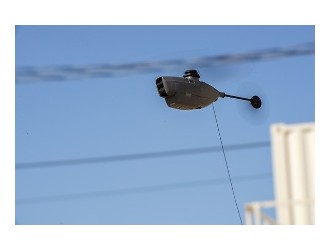
Calling the aerospace environment highly competitive, the Boeing CEO characterized any policies that ensure U.S. companies get fair access to markets and China and elsewher as positive. Citing projections that China will account for 6,800 airplanes out of a 20-year global demand for 39,000, Muilenburg sounded encouraged that the administration’s actions would help ensure Boeing wins a fair portion of those orders.
Muilenburg was specifically asked to respond to Trump's critical comments about Boeing’s plans for a 737 completions center in Zhoushan, near Shanghai. “Actions being taken to ensure U.S. competitiveness are positive actions, and we support those,” he said. “Regarding our China finishing center, that’s an important part of the partnership equation here. That finishing center is in a location wher we’ll be able to add value in China, and every airplane that goes to that center is being built here in the U.S.”
In Muilenburg’s view, more business with China resulting from partnerships such as the 737 completions center means more U.S. manufacturing jobs. In fact, while 90 percent of Boeing’s employment resides in the U.S., 75 percent of its product gets delivered outside the country, helping create a positive trade balance for the U.S. aerospace industry as a whole.
“If you look at global trade, the aerospace sector continues to be the strongest sector in the United States in terms of trade balance with a positive trade balance of more than $80 billion per year. Boeing is a big part of that,” he noted. “We’re the U.S.’s biggest exporter and within that we and our supply chain have more than 13,000 companies in the United States [that] create and sustain about one and a half million aerospace jobs.”
The Boeing Group's total revenues for 2016 dipped by 2 percent to $94.6 billion. However, the company's combined divisions achieved record levels of operating cash flow of $10.5 billion, which was 12 percent up on 2015. Overall sales backlog totaled $473 billion, a figure dominated by more than 5,700 commercial airliners valued at $416 billion.
During the fourth quarter of 2016, Boeing Commercial Airplanes delivered three more aircraft than planned (185 units), increasing revenues to $16.2 billion. For the full year, the 748 aircraft delivered represented a 2 percent decline on the 2015 total of 762 units. However, a changed mix of aircraft types delivered, plus lower research and development costs and improved performance, boosted the division's fourth quarter profit margin to 9.1 percent.





